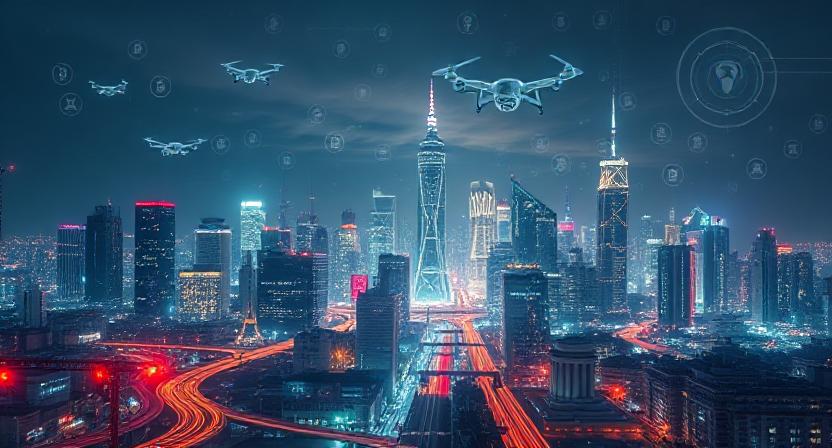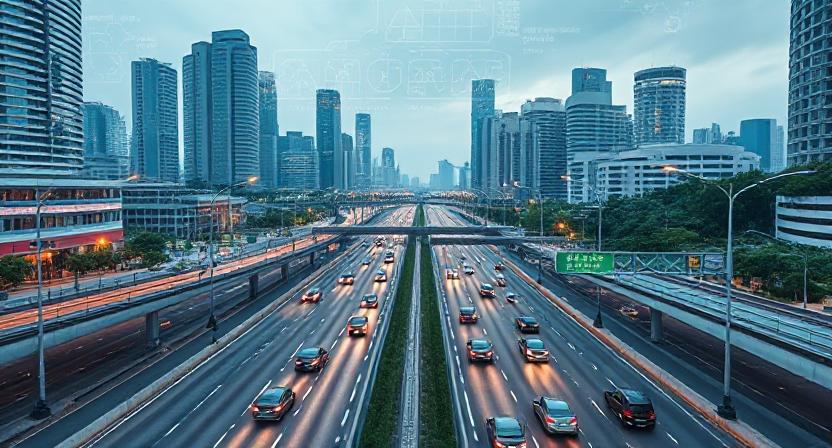AI-Powered Cities Technological Growth Privacy

AI-Driven Smart Cities Balancing Efficiency Security and Citizen Rights As urban populations continue to swell cities worldwide are embracing AI-driven smart systems to manage energy...
⏱️ Estimated reading time: 3 min
Latest News
AI-Driven Smart Cities Balancing Efficiency Security and Citizen Rights
As urban populations continue to swell cities worldwide are embracing AI-driven smart systems to manage energy traffic and security more efficiently. From intelligent streetlights to predictive traffic management these technologies promise unprecedented convenience and sustainability. However the rise of smart cities also sparks debates around privacy surveillance autonomy and citizens rights. This article explores how AI is transforming urban life and the ethical considerations that come with it.
How AI Improves City Efficiency
AI-powered smart city systems rely on data from sensors cameras and connected devices. By analyzing real-time information AI can make decisions that optimize urban operations reduce waste and improve quality of life.
Security and Public Safety
AI also strengthens urban security while assisting emergency response:
- Predictive Policing: Algorithms analyze crime data to anticipate hotspots enabling preemptive action.
- Emergency Response Coordination: AI predicts accident likelihood and dispatches first responders efficiently.
- Surveillance Analytics: AI monitors CCTV feeds for unusual behavior aiding rapid threat detection.
While these systems improve public safety they also raise significant ethical concerns.
Ethical and Social Concerns
Despite efficiency gains AI-driven smart cities bring challenges that cannot be overlooked.
Autonomy and Human Oversight
- Decision Accountability: Who is responsible when AI mismanages traffic or misjudges a security threat?
- Algorithmic Errors: Even small AI errors can escalate causing accidents power outages or misdirected emergency responses.
- Citizen Autonomy: Excessive automation may reduce human oversight leaving citizens with less control over their environment.

Singapore Intelligent Traffic and Energy Management
Singapore uses AI to optimize traffic flow and reduce congestion. Real-time sensors and predictive models help drivers avoid jams while AI-controlled street lighting cuts energy use. However debates continue over data privacy as citizens’ movements are closely monitored.
Intelligent Street Lighting
The city has installed over 10,000 smart streetlights that adjust their brightness based on real-time conditions such as traffic flow and pedestrian activity. This dynamic lighting system has led to a 30% reduction in energy consumption and a decrease in light pollution contributing to both environmental sustainability and public safety .minnovation.com
Citizen Concerns and the Call for Transparency
Despite these advancements citizens have raised concerns about the transparency of AI algorithms used in city management. Questions have been raised regarding how decisions are made and the potential for algorithmic biases. In response Barcelona has been proactive in promoting digital democracy and data sovereignty. Initiatives like Decidim a digital platform developed under the leadership of former mayor Ada Colau allow citizens to propose debate and vote on urban policies. This participatory approach ensures that residents have a voice in how AI technologies are implemented and governed .
Dubai: AI and Security
Dubai’s smart city initiatives include AI-driven policing and surveillance to ensure public safety. While effective in preventing crime critics highlight potential misuse of personal data and lack of public oversight.
Balancing Benefits and Ethical Considerations
To maximize the potential of AI in smart cities while safeguarding citizen rights urban planners must:
- Implement Transparent Policies: Clearly communicate how AI systems collect process and use data.
- Ensure Data Privacy: Encrypt data minimize storage and allow citizens to control their personal information.
- Maintain Human Oversight: Keep humans in decision loops for critical systems like policing or emergency response.
- Audit for Bias: Regularly check AI systems for inequities or discrimination.
- Promote Digital Inclusion: Ensure all citizens benefit equally from AI-powered services.
As cities become more intelligent balancing efficiency with ethics will determine whether smart cities remain citizen-friendly or evolve into surveillance-heavy environments.
Related Posts

AI in 2026 How Intelligent Agents Are Becoming Trusted Work Partners
In 2026, artificial intelligence has transcended its role as a mere productivity booster, emerging as...
February 4, 2026
Bluesky Enhances Moderation for Transparency, Better Tracking
Bluesky Updates Moderation Policies for Enhanced Transparency Bluesky, the decentralized social network aiming to compete...
December 11, 2025

Google Maps: Gemini Tips, EV Charger Predictions & More!
Google Maps Gets Smarter: Gemini Tips & EV Updates Google Maps is enhancing user experience...
December 9, 2025
1 Comment
-
Maud Purdy
Its like you read my mind You appear to know so much about this like you wrote the book in it or something I think that you can do with a few pics to drive the message home a little bit but other than that this is fantastic blog A great read Ill certainly be back










Its like you read my mind You appear to know so much about this like you wrote the book in it or something I think that you can do with a few pics to drive the message home a little bit but other than that this is fantastic blog A great read Ill certainly be back